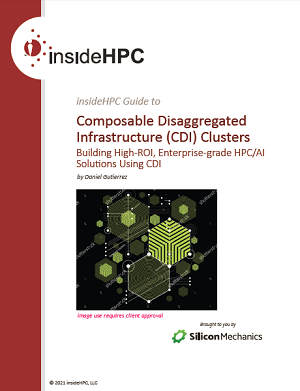
Dr. Thomas Sterling
Following his highly anticipated and always-insightful closing night keynote at the recent ISC conference, we caught up with Prof. Thomas Sterling to discuss the state of HPC. Dr. Sterling is professor of intelligent systems engineering at Indiana University School of Informatics, Computing, and Engineering, and president and co-founder of Simultac, a technology company focused on non-von Neumann memory-based system architectures.
Since receiving his Ph.D from MIT as a Hertz Fellow, Dr. Sterling has been a pioneer of parallel processing systems in HPC. His many achievements include the creation in 1994 of the Beowulf cluster with Donald Becker at NASA, a system that helped drive scale-out HPC computing. Our conversation includes Dr. Sterling’s funny account of attending a “Beowulf Bash” at the SC conference some years after clusters had become a supercomputing fixture — a party that delivered surprising results.
Here are the topics covered with time-stamps:
01:23 The Supercomputing “Race”
04:15 HPC and Society
06:40 Climate Change, Controlled Fusion
09:00 HPC’s Role in Informing or Helping Develop Social Policy
10:37 Machine Intelligence
15:50 Future of HPC
22:25 Attending a Beowulf Bash
25:07 Getting into Parallel Processing
28:10 Skillset, Workforce, Software, Accessibility
31:09 Youthful Performances at Carnegie Hall and Lincoln Center
34:68 An Encounter with Leonard Bernstein
35:30 ISC22 Closing Keynote
You can find our podcasts at insideHPC’s @HPCpodcast page, on Twitter and at the OrionX.net blog. Here’s the RSS feed.
We welcome your ideas for special topics and guest commentators. Feel free to contact Doug Black or Shahin Khan with your suggestions.




